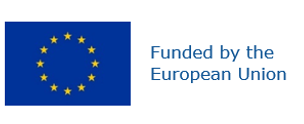SPES – Sustainability Performances, Evidence and Scenarios


SPES – Sustainability Performances, Evidence and Scenarios
Scientific manager: Mario Biggeri
The project "SPES - Sustainability Performances, Evidence and Scenarios" is financed by the European
Commission programme HORIZON-CL2-2022-TRANSFORMATIONS-01-01, for the area called "Public policies and indicators for well-being and sustainable development".
The leading partner of the project is the Department of Science for Economics and Enterprise of the
University of Florence, which oversees the scientific coordination and operational management of all
research, communication, and dissemination activities.
SPES has obtained a funding of EUR 2.7 million and envisages the collaboration of 10 European partners – University of Florence, Université de Bordeaux (France), OsloMet (Norway), University of Amsterdam (Netherlands), International Institute for Applied Systems Analysis (Austria), Tarki Social Research Institute (Hungary), University of Belgrade (Serbia), European University Institute (Italy), Platform of European Social NGOs (Belgium), London School of Economics and Political Science (United Kingdom) – and one African partner – Partnership for Economic Policy (Kenya).
Activities will last three years, starting in February 2023 and ending in January 2026.
The SPES project aims to develop a new integrated framework for sustainable human development. The proposal of innovative theoretical arguments will be supported by advanced empirical testing (e.g., econometric microsimulation and panel data analysis, codesign workshops, scenario analysis, case-study analysis), seeking to foster the implementation of European policies for social transition to reconcile productivity growth and value generation with equity, inclusiveness, and environmental protection.
The partners address their actions toward two specific objectives, namely:
1. To contribute to the definition of an appropriate measurement and analysis framework on sustainable human development and transition performance;
2. To help promote an integrated policy approach towards sustainability based on the co-evolution of its different dimensions (environmental, social, and economic).
Last update
13.11.2023
